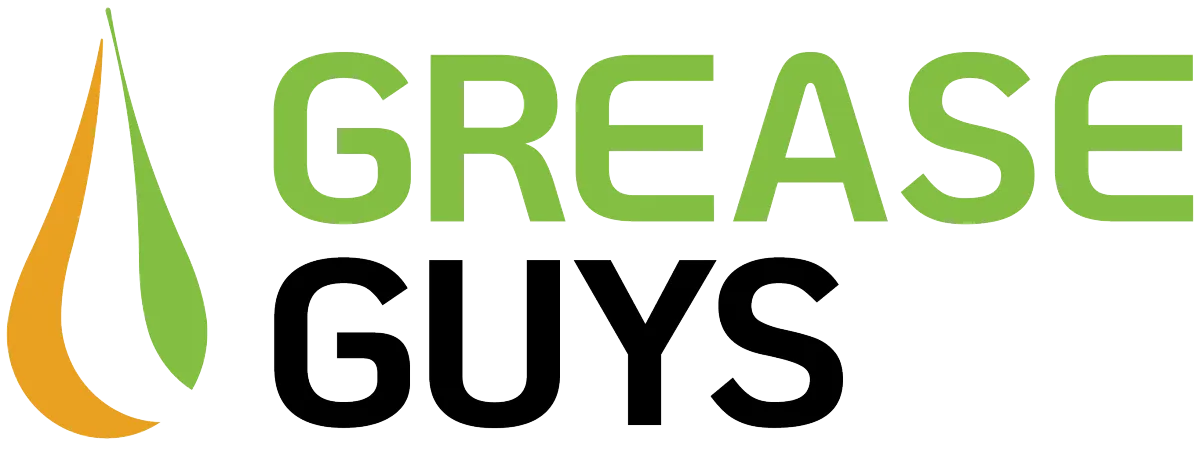Call Us Today!
Blog

Regulations for Grease & Oil Disposal in Oregon: What Restaurants Need to Know
Running a restaurant in Oregon means juggling endless responsibilities — food quality, staff, customer service, safety — and one area often overlooked until it becomes a problem is grease and oil disposal.
Improper disposal of fats, oils, and grease (FOG) can lead to clogged pipes, fines, or even restaurant shutdowns. Oregon’s environmental and plumbing regulations are strict about how restaurants handle and dispose of grease and used cooking oil.
In this guide, we’ll break down what every Oregon restaurant needs to know about grease disposal laws, how to stay compliant, and why partnering with a professional collection and cleaning service (like Grease Guys) helps protect your business and the environment.
You’ll learn:
What Oregon’s FOG disposal rules require
Common compliance mistakes restaurants make
How to set up an approved grease management system
Answers to real-world questions restaurant owners ask
How to simplify compliance with professional grease services
Understanding Oregon’s Grease and Oil Disposal Regulations
Oregon’s Department of Environmental Quality (DEQ) and local municipalities regulate how commercial kitchens manage grease, oil, and wastewater. The goal is simple: prevent fats, oils, and grease from entering the public sewer system where they can cause massive blockages and overflows.
When grease enters wastewater systems, it cools, solidifies, and coats pipe interiors — leading to sewer backups and contamination. That’s why the state and city agencies enforce strict rules for restaurants and food facilities.
Here’s a breakdown of how the system works and what’s expected from you as a food business operator:
1. FOG Program Compliance
Most Oregon cities (like Portland, Eugene, and Salem) require food service establishments (FSEs) to participate in a Fats, Oils, and Grease (FOG) Control Program. These programs mandate that restaurants:
Install and maintain properly sized grease traps or interceptors
Schedule regular cleaning and maintenance (usually every 90 days)
Keep accurate maintenance logs available for inspection
Dispose of grease and used oil through approved haulers or recyclers
2. Approved Grease Equipment
Depending on the kitchen’s wastewater flow and fixture setup, restaurants must use either:
Hydromechanical grease traps (for smaller kitchens or lower flow rates
Gravity grease interceptors (for larger operations)
Each unit must comply with local plumbing codes, and installation must be inspected and approved before operation.
3. Proper Disposal of Used Cooking Oil
Oregon’s DEQ prohibits pouring cooking oil down any drain, stormwater inlet, or onto the ground. Instead, restaurants must:
Store used cooking oil in sealed, labeled containers
Contract with a licensed oil collection service (like Grease Guys)
Keep pickup and recycling receipts for compliance records
4. Maintenance & Recordkeeping Requirements
Most local health and wastewater authorities require restaurants to:
Clean grease traps every 60–90 days
Maintain service logs for at least 3 years
Submit records to the local FOG program coordinator upon request
Failure to maintain documentation can lead to fines, re-inspections, or even suspension of permits.
How to Stay Compliant: Step-by-Step Guide for Oregon Restaurants
Compliance might sound complicated, but following a clear process makes it manageable. Here’s how to ensure your restaurant meets Oregon’s grease and oil disposal standards.
Step 1: Evaluate Your Grease Management System
Start with a professional inspection of your kitchen’s drainage and wastewater system. Identify all grease-producing sources (sinks, dishwashers, floor drains, fryers). Determine whether your current grease trap or interceptor is properly sized and in working order.
Step 2: Schedule Regular Grease Trap Cleaning
The general rule in Oregon is to clean your trap every 90 days or sooner if grease and solids occupy 25% of its volume. Partner with a certified grease trap cleaning company to handle the process safely and provide documentation for your compliance records.
Step 3: Recycle Used Cooking Oil Properly
Collect used fryer oil in a secure container and schedule pickups with a licensed recycler. Companies like Grease Guys provide sealed oil bins, scheduled collection, and full recycling services — turning waste oil into renewable biodiesel instead of landfill waste.
Step 4: Maintain Records and Documentation
Keep all grease trap cleaning receipts, oil collection manifests, and maintenance logs on file. Oregon inspectors may request proof of compliance at any time. Organized documentation shows your commitment to environmental responsibility.
Step 5: Train Your Staff
Educate kitchen staff on what should and shouldn’t go down the drain. Common training points include:
Never pour oil or grease into sinks or toilets
Use drain screens to capture food particles
Wipe greasy pans before washing
Report unusual odors or slow drainage immediately
Step 6: Conduct Periodic Inspections
Perform quarterly or semi-annual checks on your grease equipment to identify leaks, damage, or overflow risks. Routine inspections prevent costly emergencies and non-compliance issues.
Common Mistakes That Lead to Fines
Even well-intentioned restaurants can fall short of Oregon’s grease disposal requirements. Be aware of these common compliance errors:
Neglecting regular cleaning schedules – Skipping maintenance leads to overflows and sewer blockages.
Hiring unlicensed haulers – Only approved contractors can collect and recycle grease.
Lack of documentation – Missing receipts or logs often trigger compliance warnings.
Improper oil storage – Leaking or uncovered containers violate DEQ standards.
Ignoring local ordinances – City rules may be stricter than state guidelines.
Avoiding these mistakes protects your reputation and prevents costly penalties.
Frequently Asked Questions
How often should a grease trap be cleaned in Oregon?
Most municipalities require cleaning every 60 to 90 days, depending on usage. High-volume restaurants may need more frequent service.
Can I dispose of used oil with my regular trash?
No. Used cooking oil must be collected by a licensed oil recycler. Disposing of oil in trash or drains violates DEQ environmental regulations.
Do all restaurants need a grease trap?
Yes. Any food service establishment that generates greasy wastewater — including cafes, food trucks, and commissaries — must have an approved grease control device.
What happens if I don’t follow the regulations?
Non-compliance can result in fines, re-inspections, or even closure orders. The cost of violation far exceeds the cost of proper maintenance.
Can I recycle used cooking oil into biodiesel myself?
While possible in theory, it’s not recommended. DIY recycling is often non-compliant with safety and environmental rules. Licensed collectors ensure proper recycling and documentation.
Conclusion
Oregon takes grease and oil disposal seriously — and for good reason. Proper FOG management protects local water systems, prevents sewer overflows, and supports environmental sustainability.
By following the state’s FOG guidelines, maintaining your grease traps, and partnering with a trusted service provider, you’ll keep your restaurant compliant and efficient.
Grease Guys proudly serves restaurants and food service businesses across the Pacific Northwest. From used cooking oil collection to grease trap cleaning and maintenance, we help kitchens stay clean, compliant, and eco-friendly — so you can focus on what you do best: great food and service.
Contact Grease Guys today to schedule your grease service or compliance consultation.
OUR SERVICES
TIPS & ARTICLE
GET IN TOUCH
Phone: (855) 227-6060
Email: [email protected]
Address: 3188 Road M.2 NE, Moses Lake, WA 98837
Business Hours:
Mon - Sun: Open 24 Hours
AREAS WE SERVE
© All Rights Reserved • Grease Guys, LLC | Terms of Use | Privacy Policy
